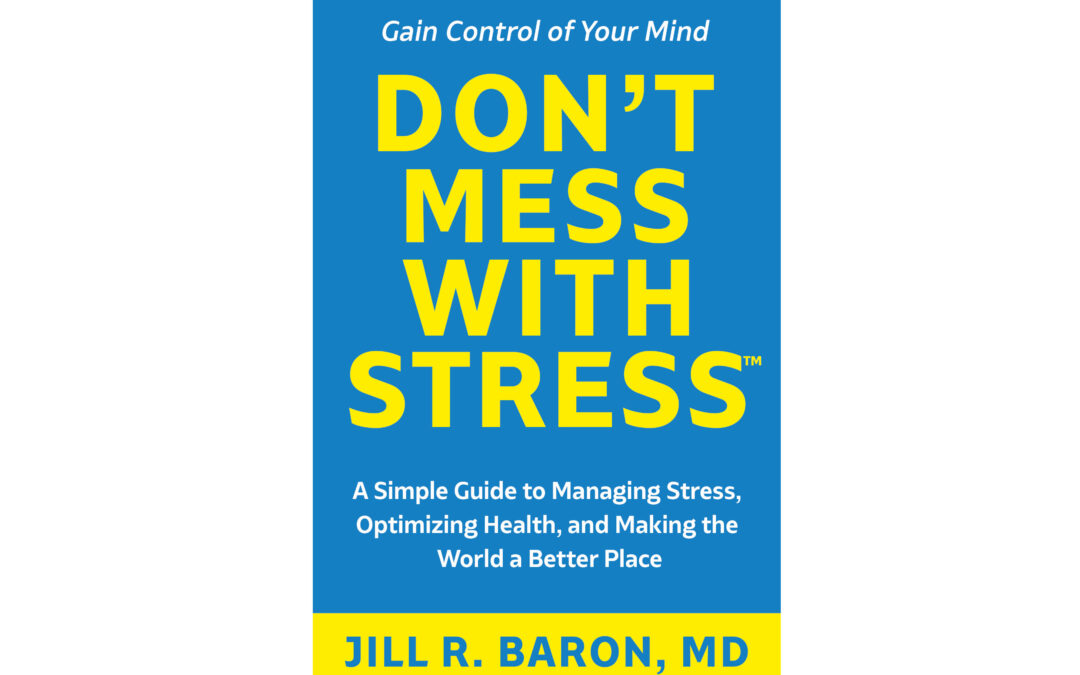
by admin | Sep 23, 2020 | health |
I hope you had a great summer. I know that we are still in prevention mode, and that our lives are not the same as they were 6 to 7 months ago. We are traversing life with restrictions on our freedom because of the Covid crisis, as well as facing issues with our political system and climate change. The unknowns of all of this is causing tremendous stress and impacting the mental and physical health of many of us. It is a time that requires significant emotional, mental, physical, and spiritual fortitude to not only survive but to thrive. In this month’s Newsletter, I underscore the basics of building resilience and suggest an additional factor than can enhance your immunity this fall and in general. A recent research article stated that, “studies have shown that a healthy lifestyle, regular exercise, balanced nutrition, quality sleep and a strong connection with (their) families and communities are all associated with a boost to the immune system.” ¹ That’s where the basics of my “Don’t Mess with Stress™” program come in. I have discussed these four core components and supplement recommendations for prevention in prior newsletters. Please see www.drjillbaron.com/blog for more information. This fall we need to withstand the stressors of life including infections like Covid. Research is showing that everything in the body is connected from our brain to our nervous system, our immune system, and our gut. So what and how we think, eat, move, sleep, and pause, can affect our health. Hence the term, “Psychoneuroimmunity.” The Don’t Mess with Stress™ Core Components and Your Psychoneuroimmunity: Diet: Have an anti-inflammatory, Mediterranean...

by admin | Aug 13, 2020 | health |
I hope you are enjoying the beginning of summer and that you are staying safe and healthy. This edition of the Newsletter is about Brain Health and how to optimize it. Having mental, emotional, and physical fitness is the key to not only a healthy, happy, and vital life, but also the wonderful combination of factors that give you the Energy to live your life. As research continues to emerge, we are learning that a healthy lifestyle is the basis of optimal health of your body, especially the brain. In my upcoming book, Don’t Mess with Stress!™—A Simple Guide to Managing Stress, Optimizing Health, and Having FUN in the Process, I outline what I believe is the core foundation for health—Diet, Meditate, Walk (move, exercise, dance), and Sleep. These 4 factors greatly affect your memory and brain health, with the goal of reducing and avoiding chronic inflammation, and strengthening the immune system. Chronic Inflammation results from the body fighting its own cells and not turning off. We find this in most diseases, including the brain, where inflammation can cause memory loss and dementia including Alzheimer’s disease.¹ In this Newsletter I am going to focus on 2 aspects of the Don’t Mess with Stress!™ program, Diet and Exercise, and show you how they can positively enhance your brain. Diet—The cornerstone of a diet to prevent and treat dementia is anti-inflammatory. The Mediterranean Diet and the “DASH” Diet (Dietary Approaches to Stop Hypertension) both contain “omega-3 fatty acids, antioxidants and polyphenols” ² which have been shown to decrease brain inflammation. Another diet currently being advocated to treat dementia and early stage...

by admin | Aug 12, 2020 | health |
I hope you are enjoying your summer. Have you noticed that sometimes your contentment in life gets interrupted by unpleasant and negative thoughts, either about yourself or others or about a situation? As you know, right now we are going through an unprecedented time, where we have to conform to rules and regulations that serve to protect us but that also restrict our freedom to move about and interact with others. It’s not easy to deal with this even though we know it is in our best interest. This can cause frustration and stress. This edition of the Newsletter is designed to help you better cope with negative and distressing thoughts and feelings such as these, and others. I am going to tell you about a powerful modality called Dialectical Behavioral Therapy (DBT) designed by a Psychologist to help you manage difficult situations. DBT was initially created by Dr. Marsha Linehan to treat patients with borderline personality disorder who were suicidal. It was also found to help people with other psychological conditions such as depression, PTSD, substance abuse, and eating disorders. And research has shown that DBT works in NON-clinical settings to help anyone develop better emotional and interpersonal skills. It has components from Cognitive Behavioral Therapy (CBT) and includes “two acceptance-oriented skills (mindfulness and distress tolerance) and two change-oriented skills (emotion regulation and interpersonal effectiveness).” ¹ ² The 4 core “behavioral skill modules” of DBT are: * “Mindfulness: the practice of being fully aware and present in this one moment * Distress Tolerance: how to tolerate pain in difficult situations, not change it * Interpersonal Effectiveness: how to...

by admin | Aug 12, 2020 | health |
I hope you and your loved ones are staying safe during this time. Moment of Silence Before I delve into the subject matter of today’s Newsletter, I ask that we take a virtual moment of silence to acknowledge the people who have passed from Covid-19 and also to honor the front line physicians, other health care workers, and all people on the front lines who are making our country survive and thrive. Thank you. Covid-19 Updates As I write this Newsletter, the deaths and cases from Covid-19 have been dropping. However, we still must be vigilant and comply with the social distancing and mask wearing regulations until we have further information. With regard to antibody testing, there are many questions about the validity of these tests and what they mean, according to Dr. Anthony Fauci, the head of the National Institute of Allergy and Infectious Diseases. He spoke on Good Morning America on April 20th and discussed the “perils and pitfalls” of this testing. See his interview here: Here are some tips to help you strengthen your lungs: We are living in a time of uncertainty, which can make many of us anxious, fearful, and unmoored. Strengthening our minds and bodies can help us cope with these emotions and weather these times. There are things you can do to shore up your resistance and improve your immunity. In a previous Newsletter, I offered some tips to stay strong. There is evidence that improving your respiratory health may improve your outcome if you get Covid-19.¹ Please review these tips to improve your lungs below. “Good ventilation and frequent cleaning of...

by admin | Aug 12, 2020 | health |
In the research for my upcoming book, Don’t Mess with Stress!,™ I have learned what I think is the most important thing for our overall health—SLEEP! I know firsthand what sleep deprivation feels like. I have experienced different types of insomnia at times–either not being able to fall asleep, or waking up during the night and not being able to fall back to sleep. After a poor night’s sleep, I feel irritable, less efficient at tasks, have decreased attention and focus, and a strong desire to find a place to lie down. Sleep deprivation—either from inadequate hours of sleep and/or poor quality of sleep can rob you of energy, vitality, and enthusiasm for life! One in four Americans suffers from sleep issues. The good news is that 75% of people with sleep issues resolve them! ¹ And during the current time of uncertainty, stress and anxiety are contributing to people’s insomnia. Why is sleep important? It’s a time of recovery, restoration, and rejuvenation for the mind and body.² Consequences of Sleep Deprivation: ³ ⁴ Fatigue Poor decision-making Increased risk of accidents Decreased Memory Formation Decreased Immune Function Doubled risk of developing cancer Increased risk of Alzheimer’s Disease Increased blood sugar levels Increased risk of heart disease Increased risk of depression, anxiety, and suicidal thoughts Weight gain What Can You Do to Improve Your Sleep? Create Bedtime Rituals—to get your body ready for sleep Choose a bedtime—before Midnight—ideally earlier than 11pm. Sleep Experts recommend adhering to this every day and on weekends—(Don’t stress about it—do your best) Decide on a wakeup time—try and stick to this. Stop all screens one...

by admin | Feb 16, 2020 | health |
Have you ever felt not good about yourself, or depressed, especially after comparing yourself to others on Facebook? 😉 I have. And it’s very easy to go down that negative rabbit hole. Yesterday, I woke up feeling that way. Then I realized, that if I changed how I looked at things, to a more positive outlook, I might feel better. And I did. I got up, looked outside my window, did yoga and meditated, ate breakfast, and got on with my day, peppering my thoughts with optimism and hope. I also added gratitude to the mix, being grateful that I am alive and well. I have lost several friends in the last year, and I am savoring the sanctity of life. Recently, I have been reading about one’s “Mindset.” The term Mindset has been popularized by Stanford researcher, Carol Dweck, PhD,who initially focused on Fixed vs. Growth mindsets with regards to intelligence in children.² Ellen Langer, PhD the Harvard psychologist, has written about Mindlessness, Mindfulness, and Aging as a Mindset. In a landmark study, Dr. Langer used a “counterclockwise psychological intervention” to see if people’s mindsets could positively affect their health. In this fascinating study in 1979, she took 70-80 year old men to a one week retreat living as if it were 20 years earlier with movies and props, etc. as if it were 1959. The men were told to “act as if it was this earlier time,” when they felt vital, and the results were amazing, according to Dr. Langer. Photos taken of the men after the retreat showed that they looked younger, and...







